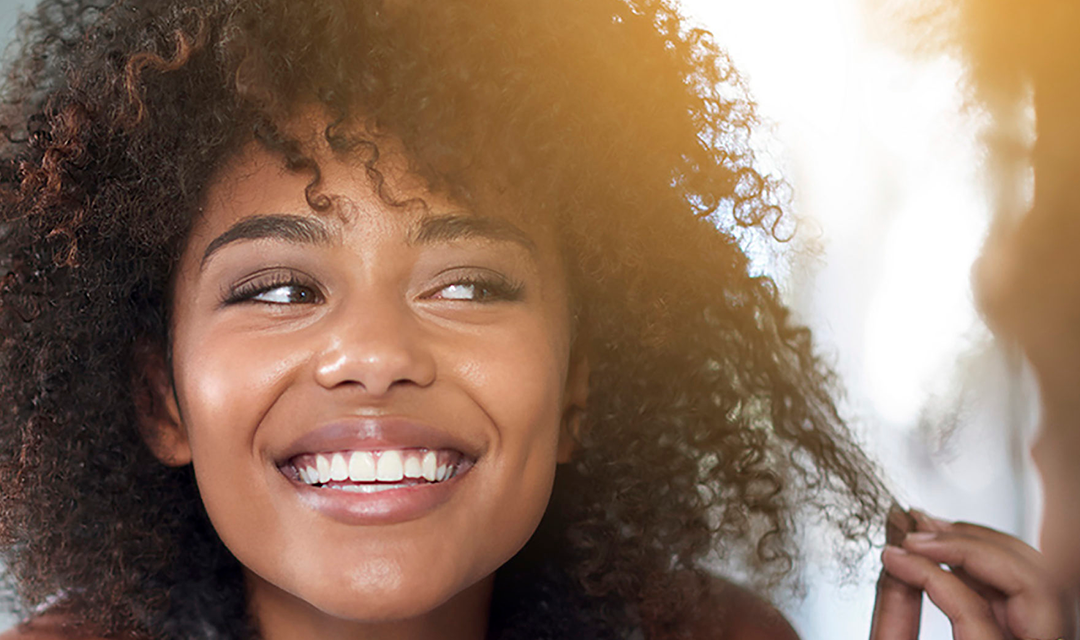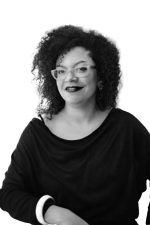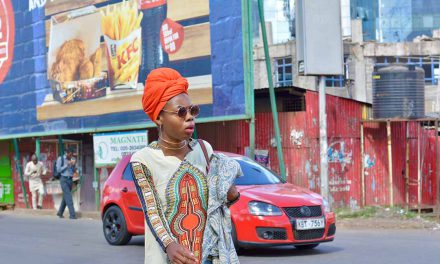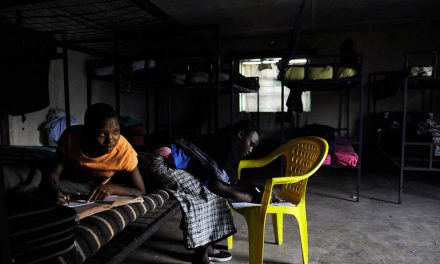A growing number of women across the continent are returning to their roots, inspiring a new wave of innovative African haircare entrepreneurs
“You dance like a white girl,”’ she quips, as we move across the dance floor, me trying to keep up with my newly acquainted friends, Adedayo and Oluwa, and their hip-grinding version of the shaku-shaku. It’s past 3am and we are way off the tourist track, if there is even such a thing in the hot, humid chaos of Lagos, a city that seldom sleeps.
The two young women, introduced to me by a Nigerian friend who visits Johannesburg regularly, are showing me around their city. The girls and I are well connected after social media joined the dots and we realise we share a common interest: African women and their passion for hair and beauty products.
As a South African entrepreneur making natural hair products free from all the sulphates and silicones usually present in African haircare, and looking to expand the retail footprint of my products, I travel to places like Lagos to see my present (and future) consumer in all her glory, to see how and where she shops, and to understand why she spends as she does on beauty brands.
The fact is, hair is big business, and the number of black women across the globe who are choosing to return to or keep with their natural hair is one of the biggest drivers of the market right now. This is a trend that is not only impacting category growth but also influencing mainstream hair trends in the market overall.
Nielsen’s Black Dollars Matter report, released in February 2017, reveals that African-American female consumers spend up to as much as nine times more than their non-black counterparts on hair and beauty products. A very similar spending pattern plays out in Africa, according to several reports by Mintel between 2015 and 2017 on the US and African haircare markets.
Like organic and other trends in food and wellness, natural haircare and beauty regimens are more than just a fad – natural hair is here to stay. And while it is about more than just the numbers, South African haircare alone recorded sales of R6.9 billion (about $480 million) in 2017. Research conducted into the South African haircare space by EuroMonitor in 2017 confirmed that innovation and growth is primarily being driven by niche brands targeting African natural hair, with sales expected to reach R7.6 billion (about $530 million) in 2022.
Like so many other African women entrepreneurs trading in this space, I have one tool that the big brands struggle to get right: an intrinsic street-level view of my consumer and an understanding of what she wants. As a start-up, I built my audience before I built the product, travelling across South Africa as well as to Luanda, Nairobi, Port Louie, Windhoek, Harare and Lagos to meet with potential ambassadors and to help me get to know my future shoppers.
In every city, the conversation is incredibly similar when you are in the hair game. Hair is everything. Hair is an asset and a commodity. Hair is persona and pleasure-giver. And for us entrepreneurs, hair is big business. As a black woman, your hair plays a fundamental role in how people see you, your style, social status, wealth and position. Some folk in the marketing game don’t seem to understand that a black woman’s hair is politicised: she is judged on her Afro or dreads or wig when she walks into a classroom, a boardroom or up to a podium.
Antiquated school rules don’t make room for African coils or how they can be styled for the class. From a young age, black women are taught that their hair needs to be fixed, straightened, altered, hidden. That generational teaching must be understood, and the damage realised, before you can embark on a sales quest.
Sitting on a rooftop in Namibia’s capital, Windhoek, at sunset with a group of potential brand ambassadors, our intimate conversation is led by the young and talkative Gisela, who tells of a close friend who has resigned from her job after she was asked to tidy up and return to braids because her natural hair was sending the wrong message to clients. The struggle is real, and the conversation, wherever you are on the continent, shares a distinctly similar thread. Much less politics exists for her white counterpart, which makes the issue frequently controversial.
From children’s toys featuring long blonde locks to hotel shampoos only designed for Caucasian hair, the topic is deep and wide, and black women globally are taking the lead as consumers in driving natural products that celebrate their black skin, naturally coily hair, and shapely figures – in what retailers call “the ethnic category”. Since the term is never used to describe any category other than black African, you might well ask, “ethnic to whom”? Black entrepreneurs in this space are revolutionising the way this consumer is viewed. We definitely don’t use the word “ethnic” – a term that serves to marginalise a burgeoning and powerful consumer base.
In Luanda, Angola, I meet hairstylist and salon owner Marines Quizomba, founder of small business Cantinho Natural. Marines takes me deep into her neighbourhood to see her operation. She is defying the odds, operating with little monetary support and a physical disability that does not seem to slow her down. Marines’ business is thriving and local media are lapping up her success. Women in her community are flocking to her small business to get their Afros and twists done, to buy her homemade organic hair creams and to learn how to wash, detangle and style their natural hair.
With the business growing, her garage has been converted into a studio for classes on the how-to of natural haircare. Through a Portuguese friend’s translation, Marines’ clients share a cold beer with me and stories of childhoods dominated by harsh chemical relaxers burning their hair and scalp; of wearing wigs, weaves and braids regularly for school and work to be accepted; and feeling that they were trying to meet a beauty standard that they didn’t set.
Dealing with their hair in its natural state is something new, which women around the continent are learning to do. Sales of harsh chemical relaxers are slipping by an average of 16% year on year, according to Mintel’s research, and showing no signs of a comeback. If you haven’t tried it, try pulling on a wig or stitch a weave – which use hair sourced from India or South America – into your hairline to understand why African women are transitioning to natural-product use and celebrating their own original beauty.
Simply put, it is liberating; the change feels good. Conscious consumerism leads many categories, such as wellness and organic foods, and it is no different for beauty. Black beauty brands are driven by entrepreneurs with their ear to the ground, and will continue to grow as they react to and meet the needs of this working woman on a fast-moving trajectory up the income ladder.
Ntombenhle Khathwane, CEO and founder of the popular South African brand AfroBotanics, says entrepreneurs like her are encouraging the move to natural hair. “African hair as a category is growing steadily, especially in formal retail in South Africa, and we help drive that,” she says. “While we know that our consumers are looking for quality products and are still generally price conscious, we also know that education of consumers and stylists alike is much-needed on the how-to of natural hair, and that is where we can step in.”
It is no easy ride, but black women entrepreneurs with an authentic product offering can take a seat at the table, despite the power and presence of giant global cosmetic giants such as L’Oréal, Unilever and P&G, which have been quick to realise the potential of Africa’s rapid urbanisation and the growing numbers of women entering the workforce. As a continent, we may be watching the US for trends, but there is enough traction and predicted growth in African markets to keep black women entrepreneurs focused and working to build attractive niche brands that can stand their own ground in a tough competitive space. We are the disruptors.
Dr Theo Mothoa-Frendo, founder of the premium skincare brand USO, says consumers want a product specifically designed with them in mind, and that is what black businesswomen in this beauty space do well. “In the skincare industry, diversity and confidence in African products has spurred the growth of niche products that offer better results based on skin tone, climate and culture. This is where we believe the perks of being a South African brand come in. As product developers, we know the consumer: we are the consumer.”
From schools to universities, to community halls and the workplace, a new ethos is underway, one that celebrates the African woman, with her skin tones and kinky hair, as they are. This upwardly mobile shopper is finally being recognised without being forced to conform to a Eurocentric standard. As a lecturer once said to me about my own business when I was taking a business course, “you aren’t selling hair products, you’re selling self-love.”
TARYN GILL holds a BA in literature from UKZN and has done postgraduate studies in digital communications and marketing. She worked for 18 years in publishing and marketing at the Sowetan, Elle, Independent Newspapers and Gauteng Tourism, among others. Her business, The Perfect Hair Africa Collective, based in Johannesburg, is a manufacturing and retail operation.














